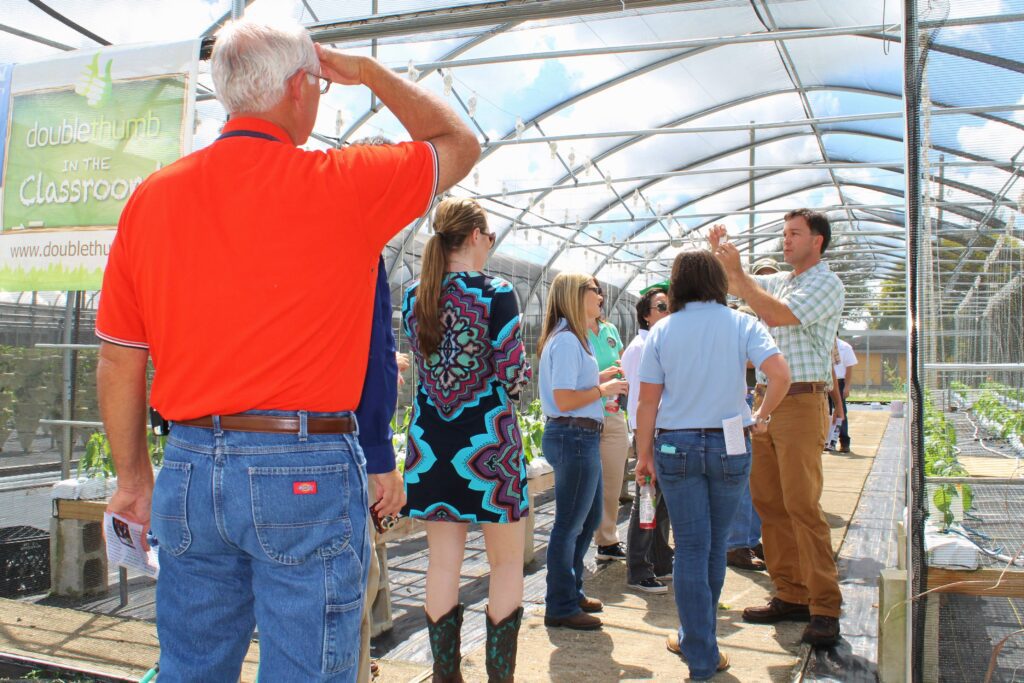Tracking the growth of agritourism for Florida farms.
Creating an industry takes hard work and a stomach for risk.
No one knows that better than the people who toil on Florida soil uncertain of what hazards lay ahead – drought, pests, disease, market fluctuations, changing regulations, evolving consumer preferences… The list goes on and on.
So I’m not surprised to see the growth of agritourism despite the work and guesswork that goes into betting that travelers will be willing to pay for the experience of picking produce, looking inside a beehive, wandering a corn maze, or holding a party in a barn.
The 2012 agricultural census reports nearly a 40 percent increase in agritourism receipts in Florida just since 2007.
When Polk County/IFAS Extension agent Mary Beth Henry organized a local agritour earlier this year, she gave local growers a low-cost one-off trial run. It was a test of both consumer and supplier. Will tourists pay for a farm experience? And are operators ready to provide the level of service a tourist expects?
The answer: Hard to say just yet. About a dozen folks went on the daylong blueberry tour she organized in April, with stops at Shady Oaks Fruit Farm in Lakeland, to pick, at True Blue Winery in Davenport, to sip, and to the Wm. G. Roe & Sons Inc. packinghouse in Eloise, to learn.
What UF/IFAS was able to do was to shoulder some of the work and risk. Henry wrote the scripts, did the advertising, bought the liability insurance and arranged to have the right people show up in the right places.
With the lessons learned, Henry is currently organizing a honey tour for late November. She has also organized a meeting to chart the course for the future of local agritourism, scheduled for Nov. 12 at the Central Florida Sports Marketing and Tourism Office, 2701 Lake Myrtle Park Road, Auburndale. You can contact Mary Beth at 863-519-1049 or mbhenry@ufl.edu for more information on these events.
It makes sense that combining the state’s two largest industries would produce a lucrative hybrid. It’s the job of UF/IFAS to breed prosperity in Florida. As a science-based organization, though, we turn to evidence, not intuition, as our guide for what works.
What we know already is that the vast majority of farms depend on a second source of income to stay afloat. Fewer than 2 percent of Americans work in agriculture. Agritourism might be a way to keep more Floridians farming. It could also reconnect the 98 percent to their food. Hopefully that would make them more informed about what they eat and more supportive of the folks who feed them.
There’s no universal how-to list for guaranteed success in agritourism, but here are some recommendations from our www.solutionsforyourlife.ufl.edu website you should consider if you’re interested in having visitors on your farm:
- Identify goals. Determine why you want to start an agritourism operation and what benefits you hope to get from it.
- Understand surrounding tourism operations. Find a way to collaborate, rather than compete, with other local attractions.
- Create a business plan, including your mission, goals, financial needs, resource assessment, and strategies.
- Identify your market. You need to define your market to effectively attract customers.
- Understand legal issues and purchase liability insurance. Any time a landowner allows visitors on his or her property, the landowner needs protection from potential lawsuits.
- Plan how to manage visitors and organize activity areas.
- Use “Limits of Acceptable Change.” Determine how much impact from visitors is acceptable and how will you keep within that limit.
- Evaluate costs and benefits. Careful monitoring of finances, visitor experience, and environmental impacts is needed to maintain the quality of your agritourism operation.
It’s not easy, but neither is farming.
CREDITS
story by JACK PAYNE
About the author: Jack Payne is the Senior Vice President for Agriculture and Natural Resources at the University of Florida Institute of Food and Agricultural Sciences

